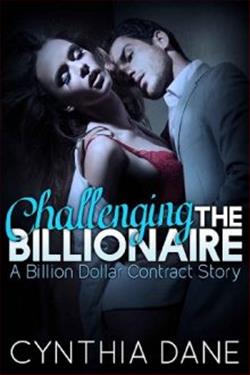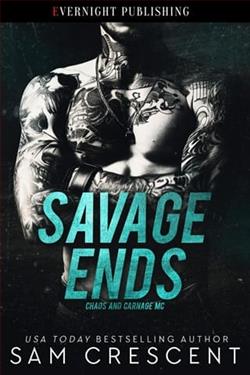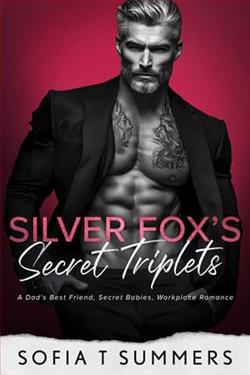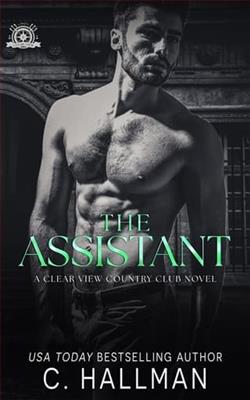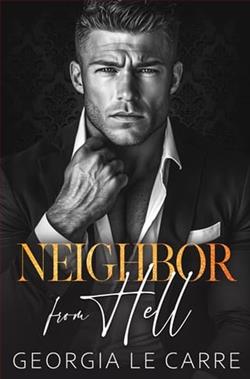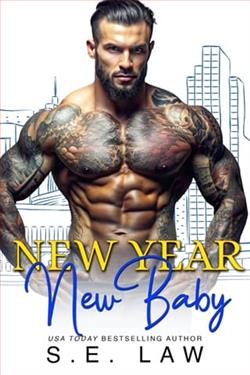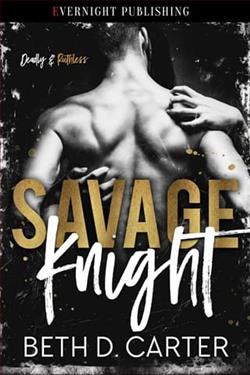Page 1 of A Deeper Darkness
Chapter One
Washington, D.C.
Edward Donovan
Eddie Donovan didn’t like crowds. Crowds were unpredictable, dangerous. Crowds held a multitude of malcontents, any one of which could be the death of him, in the most literal way. He was surrounded by people, and sweating. Despite the aviator-style Ray-Bans perched on his nose, the sun shone brightly in his eyes, making it harder to see. Even in his car he felt unsafe.
Donovan, formerly Major Edward Donovan, 75th Ranger Regiment, couldn’t help himself. He scanned the pedestrians incessantly as he looked for a place to park. Susan said she’d meet him at the carousel behind the Smithsonian and they’d walk the girls over to the Tidal Basin together. He’d thought it better for her to get off at the Smithsonian Metro stop and cut through the back streets, where there would be fewer people, but she’d insisted. The day was fine, spring sun yellow and sharp, and she wanted the exercise. The girls needed it, too—the more they got during the day, the easier it was to put them down at night.
He was running late. He finally found a spot on Seventh. He pulled in, dropped a handful of quarters into the meter and took off at a jog, down the Mall, away from the Capitol.
They weren’t alone in their planned endeavor. It seemed every family in the Washington metro area, plus oodles of tourists, had decided to meet on the Mall and walk down to the Tidal Basin to see the cherry blossoms. There were hundreds of jolly people milling about.
Police ringed Independence Avenue, wary and watchful. Despite the beautiful day, terror threats were always paramount in law enforcement’s mind, especially when it came to large gatherings. Just plain common sense was needed. But for a former Ranger, the authorities’ lack of common sense was teeth-grindingly aggravating. As he moved swiftly through the crowds, Donovan spotted at least five points of ingress, holes in the watch. Of course, this was his world now, his job. He was a civilian in clothing only—his mandate was to protect. Only his paychecks were printed and signed by multinational corporations instead of the U.S. government.
The Gothic spires of the Smithsonian appeared to his left, and the music of the carousel floated to his ears. He spotted Susan, her blond hair up in a ponytail under a Redskins baseball cap, matching aviator Ray-Bans on her face. She looked like an incognito movie star, daintily lean and trim, and for the hundredth time he congratulated himself on landing her. She was the daughter of his former mentor, the man who’d shown him how to be a soldier. A good man now rotting under a white stone at Arlington, lost not to battle, but cancer, like too many others who’d served in Vietnam and Korea. The last thing Stewart had asked was for Donovan to take care of his little girl, a mission Donovan was only too happy to undertake.
Susan spied him and a smile spread across her face. Alina and Victoria—Ally and Vicky—were attached to either end of Susan’s arms like limpets, dragging her forward. He smiled in return and crossed the remaining few feet to them, grabbing the baby, Vicky, by the waist and swinging her up onto his shoulders. The five-year-old squealed in frightened pleasure, and Ally smiled indulgently at her little sister. In a perfect imitation of Susan, she crossed her little arms and said, “You know she just ate, right, Dad? You do that and she might throw up.”
Eight, going on thirty.
“I’ve been barfed on before by lesser women.” He swung Vicky around his shoulders, the helicopter, they called it, and she laughed and laughed. Her giggles were infectious, and soon the whole family chimed in. Donovan felt his heart constrict. This—making his daughters and wife laugh—this was sheer perfection.
Vicky attached herself to his back like a monkey, and they started walking west.
“How are you, chickens?” he asked.
“We’re fine,” Susan answered. “I got the oil changed on the way to the Metro—apparently we need new wiper blades.”
“They always say that,” he muttered, and she smiled.
“I know. The danger of sending a woman to do a man’s job. I told them I’d let you know and the kid looked at me like I was an idiot. Have you eaten? I packed us some sandwiches. Vicky had half of hers already, she couldn’t wait. I thought we could stop in front of the monument and have a little picnic.”
“Sounds great.”
It sounded like a perfect chance for a sniper to pick them all off one by one, but he wasn’t about to share that with Susan. She was hardly delicate, his wife. After years of being the daughter of a soldier, then the wife of one, she was battle-hardened herself. But once the girls had come along he’d felt an overwhelming need to protect her, to keep her ignorant of all the dangers surrounding them.
It only took a few minutes to get to the grassy knoll the monument rested upon. Donovan stared at the obelisk, shaking his head. He’d lived in the District his whole life, yet had never gone up in the monument.
For a time it had been under renovation, and, of course, September 11 meant it had been closed, and the elevators didn’t run except for visiting dignitaries. But it was back open now, more than a symbol of the geographical heart of Washington, D.C. It was a symbol of power. Phallic. Soaring. White marbled. Like a flawless compass pointing north, not to the magnetic pole, but to the heavens. To the only real masters of the brethren beneath.
He really needed to schedule a time and take the girls. He’d heard the view was amazing.
They found a spot on the hill and settled in, the buffalo-checked stadium blanket warm underneath them, both girls serious about eating their sandwiches but shivering in excitement, like racehorses in the gates. Donovan understood their anticipation, but for different reasons. He wanted to get down to the cherry blossoms and take their stroll, watch the festivities and go home. Get them out of harm’s way. Home was the only place he could truly relax. These milling masses of people were too much for him. He chided himself—marking time was one of his worst faults—but blamed it on the crowds. And the feeling that something was wrong. He’d learned the hard way never to ignore his gut.
Ally was staring at him, and almost as if she could read his thoughts, set her half-eaten sandwich on the plastic bag and said, “Can we go, Mommy?”
“Finish your sandwich, baby.”
“I’m done. Look, Daddy’s done, too.”
“Eddie,” Susan scolded. “Eat.”
He glanced at her, then to Ally. With a sly grin, he shoved the rest of the sandwich into his mouth. Ally responded with giggles and tried to do the same, wedging the Wonder bread sideways, smearing peanut butter on her cheeks. Vicky, now eating Cheerios from a sandwich bag, proceeded to upend the plastic into her mouth, spilling little Os down her shirt. She looked festooned for a party, and Donovan laughed out loud.
“Finished,” they cried together, and Susan shook her head at them.
“I didn’t think I’d ever raise such savages. Fine. Fine. We can go.”








